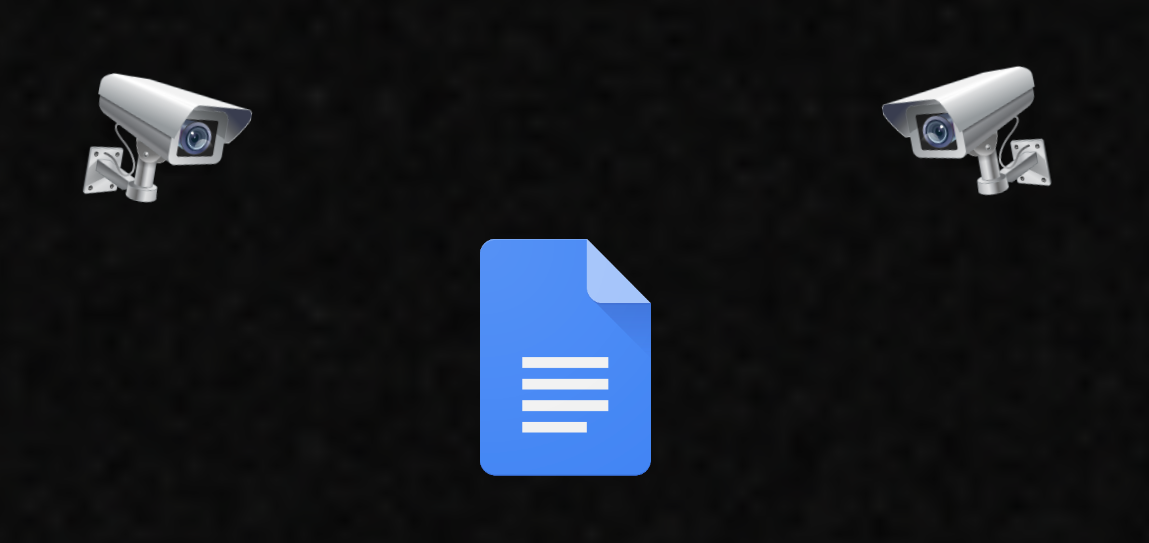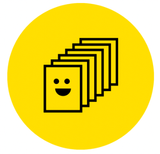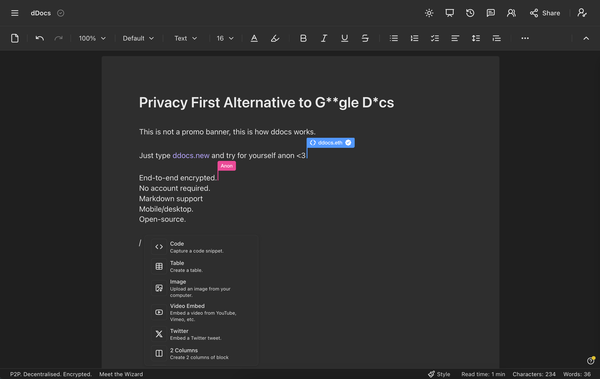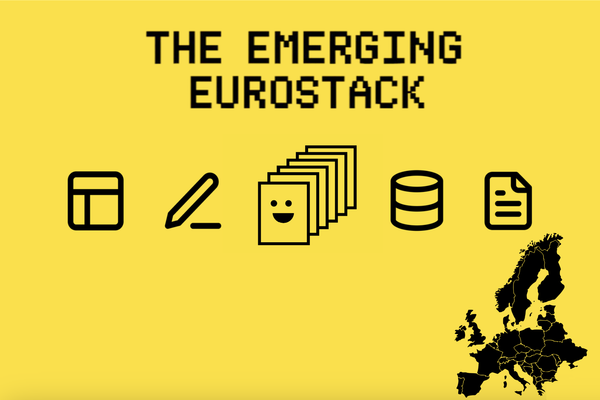Google Docs and Gemini AI: The Privacy Problem in 2025
Google Docs is not private. Your documents are not end-to-end encrypted and you are essentially trusting Google to respect your privacy. Now that Gemini AI is integrated across Google Workspace, your documents may be analyzed to improve Google’s systems, including its AI models.

What you draft, edit, and store is tied to Google’s servers and their data processing policies. This shift has led many to ask: Does Google Docs train Gemini AI? Are Google Docs still private? The reality is clear: once your words are stored on Google’s servers, they are no longer exclusively yours. They may be logged, analyzed, and potentially used to improve AI systems such as Gemini.
For anyone who cares about privacy, creative ownership, or sensitive data, this is not a welcome change. Centralized cloud platforms are not built to protect your words. It is time to rethink how and where we write. If you want a safe Google Docs alternative for privacy, ddocs.new is built for that.
Does Google Docs Train Gemini AI? How Your Data Is Used
Google’s terms of service allow Docs data to be used to “improve services,” which could potentially include AI systems like Gemini. This means your documents may be exposed in several ways:
- Training and tuning: Your writing may be used to inform and refine Google’s language models
- Metadata logging: Who you collaborate with, when, and how long you write is collected
- Search and indexing: Even files marked ‘private’ are processed and indexed by Google, making them easier to surface for features like search, suggestions, and possibly AI tools
Your intellectual work is not fully private. Once stored in Google Docs, it is effectively controlled by Google.
Are Google Docs Private? The Privacy Risks You Should Know
Google Docs may look private on the surface, but the way the platform is built means your documents are never fully under your control. The risks come from how the system itself operates:
- Business model
Google Docs is “free,” but under Google’s terms, your documents and activity may be used to “improve services” or “develop new ones.” In practice, this can include supporting AI features in Workspace. - Opaque policies
Long, complex terms of service bury permissions that let Google retain broad rights over your content. Most users never read or understand these clauses. - Server dependence
Every file passes through Google’s servers, creating a single point of surveillance and failure. You do not hold the encryption keys, so “private” does not mean only you can access it. - AI by Default
Google has begun filling Workspace with AI features like “Help me write” and automatic summaries. Many users report triggering them by accident and say the interface makes it hard to avoid AI prompts. Gemini features are rolled out broadly by default in Workspace, and users have expressed confusion around how to fully disable them.
The issue is that your privacy depends on Google’s servers and policies, not on your own authority. These risks explain why so many people are now searching for Google Docs privacy alternatives. Privacy-first tools like ddocs.new take a different approach by ensuring only you, and those you give access to, can ever read or use your work.
Privacy-First Google Docs Alternative: dDocs
ddocs.new offers a different model, one that keeps your words truly private. Unlike Google Docs, it is built so that scraping, surveillance, and unwanted AI use are impossible by design.
- End-to-end encryption ensures only you and your collaborators can read your work. You hold the encryption keys, not a corporation.
- Local & peer-to-peer storage removes reliance on centralized servers. Your data stays in your local browser and on IPFS, under your control.
- No lock-in: you can export, decrypt, and host your documents independently. Your work is never trapped inside the app.
dDocs is not privacy by promise or policy, it is privacy built into the architecture itself.
Own Your Words Again
Google Docs is convenient, but convenience now comes at the cost of privacy. If you want your writing to remain yours, and not be analyzed or used to train AI systems, you need tools that are built with privacy at their core.
Now convenience can also come with privacy thanks to ddocs.new: your documents stay encrypted, decentralized, and under your control. Write, share, and collaborate knowing your words belong to you <3





